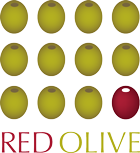At Red Olive, we’re always looking for ways to share knowledge and new ideas throughout the whole team, whether a team member is a graduate new to the world of data or one of our experienced consultants getting an update on a new trend. As part of this knowledge share, we have set up a series of lunchtime talks and this month, senior consultant Nigel Meek discussed the subtle differences between DevOps and DataOps, before touching on the importance of APIs in extracting value from data – and how all three of these philosophies guide our work.
The importance of DevOps
As Nigel explained, DevOps is best thought of as a culture or way of working, and a commitment that a team needs to make to continuous delivery, deployment and integration of whatever it’s producing. In that respect, it’s central to much of what Red Olive does for its clients. As an organisation, Red Olive’s focus is on improving business practices through more efficient collection, storage and analysis of data. Each of these is a process that needs to be considered quite separately from the tools that enable it, so that the solution delivered is tailored to the client’s individual business practices.
Part of the DevOps mindset, and something we consider in every scenario, is improved communication and collaboration. Data is most valuable when it remains easily accessible, so identifying existing silos and working out how they can be opened up frequently forms part of the overall process. Plus, improving connections between team members helps them to better understand how they each use set of data, and to improve internal business practices. Although there are many tools for facilitating better communication, including Microsoft Teams and Slack, it should not be approached from a software-first standpoint but, rather, be considered in the business context before any solution is decided upon.
The Red Olive approach to DevOps
Red Olive is committed to delivering value to each client as an ongoing process, rather than only upon project completion. It uses an Agile-based sprint methodology, with interim milestones and short deadlines that allow it, and the client, to gauge the success of each stage in real time. This not only helps a project to retain impetus: it also allows for amendments to be made where required for constant improvement through iteration.
However, this doesn’t mean that DevOps and ‘Agile’, while related, are interchangeable terms. While DevOps is a collaborative approach that we apply to enable continuous improvement, ‘Agile’ applies specifically to development and the broader product lifecycle.
This occurs frequently, when Red Olive remains connected to a project following implementation. Several clients keep our staff on site, while others benefit from our training and consultancy services. At this point, we shift from DevOps to ‘Agile’ working, with a focus on the implementation’s lifecycle and ongoing improvements, even while several pillars of a DevOps architecture, like continuous integration and delivery, the use of microservices, and monitoring and logging, remain relevant.
Frequently, Red Olive will remain associated with a project following implementation. Several clients keep our staff on-site, while others benefit from our training and consultancy services. At this point, our staff tend to focus on the implementation’s lifecycle and ongoing improvements, using the Agile approach, whereas the client will hold responsibility for and operation of the DevOps process and environment, and its functionalities such as continuous integration and delivery, monitoring and logging and so on.
The DataOps process
We also use DataOps methodologies as a way to improve the quality of our clients’ data analytics and to help deliver insights more quickly. Doing so enables them to work with fresh, relevant data, which is essential when, for example, using AI and machine learning to schedule predictive maintenance as we have done with utilities providers.
Looking to maximise the value of data as quickly as possible has long been a policy at Red Olive, but it’s only when the practice has become more common that the term DataOps has become current.
Successful DataOps relies on making data accessible, and keeping it that way, frequently through the use of an interim layer. With many of our clients using several apps or SaaS providers concurrently, we therefore employ APIs as a conduit, allowing us to extract data from one system, translate it for use elsewhere, then load it into an interim or permanent repository for ongoing use.
Our deep knowledge of common enterprise systems, gained through years of experience with a wide variety of clients, has enabled us to build a series of baseline processes that can be adapted to each use case. This helps us give our clients a head start – while delivering on the promises of DevOps, DataOps and agile working.
Do you need to streamline your data processes or get a better understanding of what is happening across your organisation? Contact us for a no-obligation chat and we can help you get a clearer picture.



